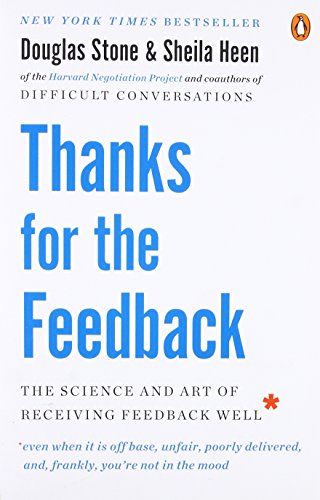Difficult Conversations How to Discuss What Matters Most Summary
Initial Thoughts on Difficult Conversations
 Difficult Conversations: How to Discuss What Matters Most
Difficult Conversations: How to Discuss What Matters Most 
Difficult Conversations: How to Discuss What Matters Most comes out of the work of the Harvard Negotiation Project. Douglas Stone, Bruce Patton and Sheila Heen define a difficult conversation as anything you find hard to talk about. The authors explore,
"what it is that makes conversations difficult, why we avoid them, and why we often handle them badly."
We all face difficult conversations, at home and at work, and each of us has to struggle with how to address them. Do we avoid or confront them? The authors provide a framework for understanding and conducting difficult conversations.
What is Difficult Conversations About?

One of the authors' stated goal of Difficult Conversations is to
" help you turn difficult conversations into learning conversations by helping you handle each of the Three Conversations more productively and improving your ability to handle all three at once."
Stone, Patton and Heen explain that each difficult conversation is really three different conversations – The "What Happened" Conversation, The Feelings Conversation and The Identity Conversation. The "what happened" conversation gets to the facts without placing blame or guessing the others' intentions. Rarely do understanding the facts alone resolve the situation.
Feelings are often at the core of a difficult situation. The feelings conversation helps to unravel the complexities of our emotions, while diffusing the negative effects. The identity conversation looks at how the event interacts with our identity. It helps us to see how our perceptions of ourselves may affect the position that we take.
Difficult Conversations is a lot longer than it needs to be, and bloated in some areas. Despite that, I learned and gained a lot from reading this book, and, as I read, I found myself getting a deeper understanding of the subject matter. All participants in a difficult conversation contribute to the outcome.
5 Great Ideas from Difficult Conversations
- When you are participating in a conversation, you need to understand not only what is said, but also what is not said. You also need to understand what the people involved are thinking and feeling, but not saying to each other.
- The gap between what you're really thinking and what you're saying is part of what makes a conversation difficult.
- It's always possible to define a problem without reference to feelings.
- Most difficult conversations involve the "blame game," that is, who's to blame for the mess we're in.
- When you have to deliver bad news, whether it is to fire someone or tell the children that you are getting a divorce, go in with the purpose of giving them the news, of taking responsibility for your part in the outcome, of showing that you care about how they feel, and of trying to be helpful going forward.
This is not a book you read for entertainment or mere information, but one you read to get a deeper understanding of the intricacies and complexities of difficult conversations. It's packed with a lot of information, so there is no way that you can remember all the information in just one read. The checklist and roadmap at the end of the book is a great review. I recommend this book.
Final Thoughts on Difficult Conversations
This review first appeared in April/May 2007 Ambeck Edge, andDifficult Conversations is a book that will always be relevant. It was great to re-read this review and be reminded of its content. As I read the review again, I was reminded of two of the Four Agreements by Don Miguel Ruiz: don't take things personally and don't make assumptions. These two agreements can help to diffuse heated conversations, or prevent conversations from escalating. This is a great lesson for us.
For those interested, the other two agreements are: Be impeccable with your word and always do your best.
Book List
Difficult Conversations: How to Discuss what Matters Most
, Douglas Stone, Bruce Patton & Sheila Heen
The Four Agreements: A Practical Guide to Personal Freedom, A Toltec Wisdom Book
, Don Miguel Ruiz
UPDATE: First published here in August 2009
 Difficult Conversations: How to Discuss What Matters Most
Difficult Conversations: How to Discuss What Matters Most 
 Thanks for the Feedback: The Science and Art of Receiving Feedback Well
Thanks for the Feedback: The Science and Art of Receiving Feedback Well 
 Thank God for the Feedback: Using Feedback to Fuel Your Personal, Professional and Spiritual Growth
Thank God for the Feedback: Using Feedback to Fuel Your Personal, Professional and Spiritual Growth 

Hello there! I am Avil Beckford, the founder of The Invisible Mentor. I am also a published author, writer, expert interviewer and the host of the MoreReads: Blueprint to Change the World, a movement to help participants get the 10 skills needed for future jobs. Sign-up for MoreReads: Blueprint to Change the World today! In the meantime, Please support me by buying my e-books Visit My Shop, and thank you for connecting with me on LinkedIn , Facebook, Twitter and Pinterest!
Avil Beckford
Difficult Conversations How to Discuss What Matters Most Summary
Source: https://theinvisiblementor.com/review-of-difficult-conversations-how-to-discuss-what-matters-most/